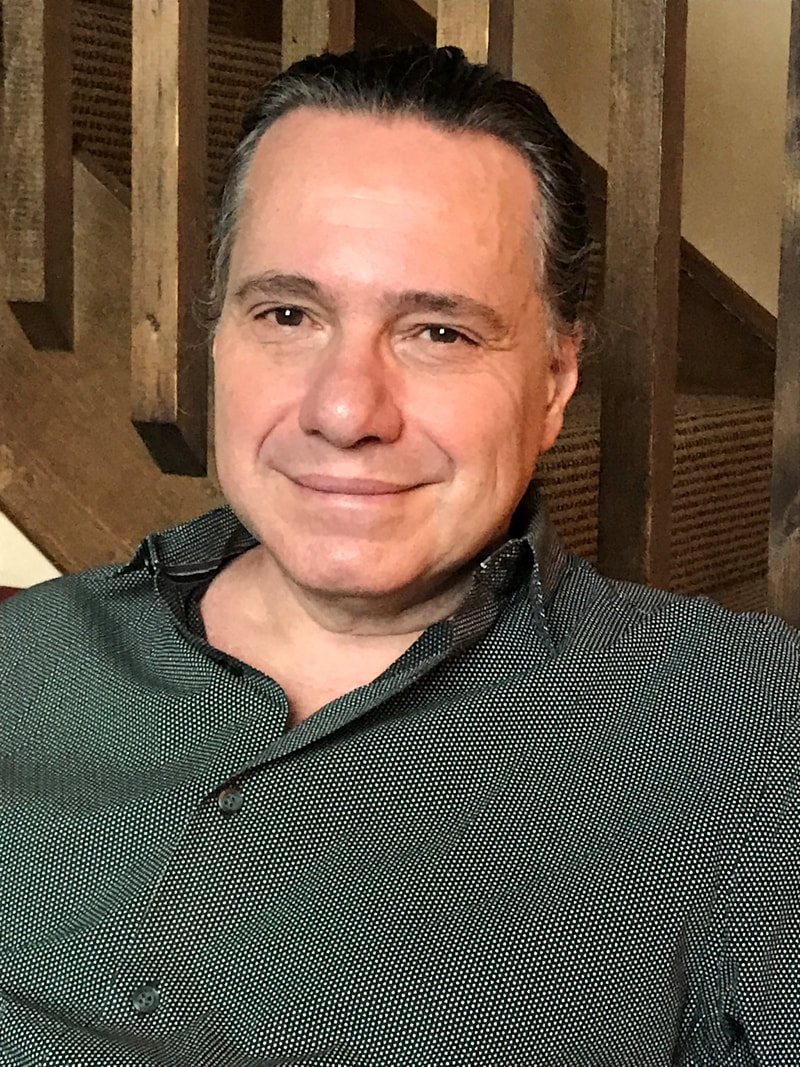|
Pablo Visconti, PhD
$150,000 / 2 years Awarded November 2020 |
Pablo Visconti, PhDUniversity of Massachusetts - Amherst
Amherst, Massachusetts About
Dr. Pablo Visconti received his PhD in Chemistry from the University of Buenos Aires in 1991 studying sperm signaling pathways. He continued his scientific career as a postdoctoral research associate with Dr. Gregory Kopf at the University of Pennsylvania on the same topic. As part of his postdoctoral work he observed that sperm capacitation is associated with the regulation of a protein phosphorylation signaling cascade. Also at the University of Pennsylvania, he started studying testis-specific kinases (TSSKs) and discovered TSSK3, the third member of this family. He is now Professor at the University of Massachusetts, Amherst, in the Department of Veterinary and Animal Sciences. His research continues to be focused on studying the molecular basis of sperm capacitation. The Visconti Lab has more recently started to investigate ways to manipulate the sperm capacitation process for translational purposes. Dr. Visconti’s laboratory is particularly interested in the study of the biology of TSSKs and in the use of these protein kinases as target for development of male contraceptives, and has an active collaboration with Dr. Gunda Georg, another MCI grantee, to discover non-hormonal TSSK inhibitors. Our Grant
MCI is supporting the Visconti lab to study the biological role of TSSKs. Using CRISPR/Cas9, his laboratory has generated mice knock-out models lacking individual TSSKs. These models are essential to validate drug-discovery efforts conducted in collaboration with Dr. Georg. TSSK proteins are expressed post-meiotically in testicular round spermatids and play a role in spermiogenesis. Interestingly, these kinases remain present in mature sperm suggesting that small molecules inhibiting these kinases have the potential to be used as on-demand, reversible and non-hormonal male contraceptives. MCI will support Dr. Visconti and his lab to further characterizing the TSSKs models, and to continue the search for TSSKs specific inhibitors. |
MCI Grantee: University of Massachusetts, Amherst (Dr. Pablo Visconti)
Publications
Nayyab S, Gervasi MG, Tourzani DA, Caraballo DA, Jha KN, Teves ME, Cui W, Georg GI, Visconti PE, Salicioni AM. TSSK3, a novel target for male contraception, is required for spermiogenesis. Mol Reprod Dev. 2021 Nov;88(11):718-730. doi: 10.1002/mrd.23539. Epub 2021 Oct 8. PMID: 34623009; PMCID: PMC8961454.
Salicioni, Ana M., María G. Gervasi, Julian Sosnik, Darya A. Tourzani, Saman Nayyab, Diego A. Caraballo, and others, ‘Testis-Specific Serine Kinase Protein Family in Male Fertility and as Targets for Non-Hormonal Male Contraception†’, Biology of Reproduction, 103.2 (2020), 264–74 <https://doi.org/10.1093/biolre/ioaa064>
Li, Yahui, Julian Sosnik, Laura Brassard, Michael Reese, Nikolay A. Spiridonov, Tonya C. Bates, and others, ‘Expression and Localization of Five Members of the Testis-Specific Serine Kinase (Tssk) Family in Mouse and Human Sperm and Testis’, Molecular Human Reproduction, 17.1 (2011), 42–56 <https://doi.org/10.1093/molehr/gaq071>
Nayyab S, Gervasi MG, Tourzani DA, Caraballo DA, Jha KN, Teves ME, Cui W, Georg GI, Visconti PE, Salicioni AM. TSSK3, a novel target for male contraception, is required for spermiogenesis. Mol Reprod Dev. 2021 Nov;88(11):718-730. doi: 10.1002/mrd.23539. Epub 2021 Oct 8. PMID: 34623009; PMCID: PMC8961454.
Salicioni, Ana M., María G. Gervasi, Julian Sosnik, Darya A. Tourzani, Saman Nayyab, Diego A. Caraballo, and others, ‘Testis-Specific Serine Kinase Protein Family in Male Fertility and as Targets for Non-Hormonal Male Contraception†’, Biology of Reproduction, 103.2 (2020), 264–74 <https://doi.org/10.1093/biolre/ioaa064>
Li, Yahui, Julian Sosnik, Laura Brassard, Michael Reese, Nikolay A. Spiridonov, Tonya C. Bates, and others, ‘Expression and Localization of Five Members of the Testis-Specific Serine Kinase (Tssk) Family in Mouse and Human Sperm and Testis’, Molecular Human Reproduction, 17.1 (2011), 42–56 <https://doi.org/10.1093/molehr/gaq071>
Meet MCI's Grantees & Fellows!
Our grantees and fellows represent some of the finest minds in the male contraception research community from around the world.
At Male Contraceptive Initiative, we prioritize funding research that aligns with our mission of driving male contraception closer to clinical trials. We strategically allocate our resources to support a diverse range of projects, focusing on non-hormonal and reversible methods that have the potential to meet the needs of a broader population. Our goal is to catalyze progress in this field and bring innovative male birth control options to market.
Discover the innovative research being conducted by our grantees and fellows by clicking on the buttons below:
At Male Contraceptive Initiative, we prioritize funding research that aligns with our mission of driving male contraception closer to clinical trials. We strategically allocate our resources to support a diverse range of projects, focusing on non-hormonal and reversible methods that have the potential to meet the needs of a broader population. Our goal is to catalyze progress in this field and bring innovative male birth control options to market.
Discover the innovative research being conducted by our grantees and fellows by clicking on the buttons below:

